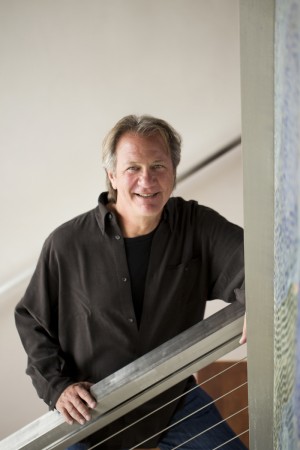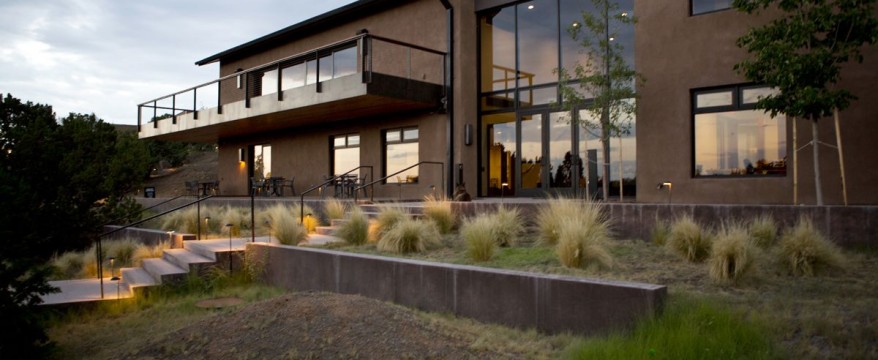Between A Rock and A Hard Place: Teaching and Learning in a Time of Cynicism
In this first post (and my first foray into the world of blogging!) I want to return to the summer of 1991, when the Academy was not yet a formal organization, but more an idea, an impulse I had conceived with my friend and mentor, Leonard Bernstein. Lenny had died the year before, and I was living part time in Boulder, Co., slowly moving forward with our vision of an institute that would help people awaken to their natural love of learning, and thereby activate a shift in nothing less than Western culture.
At that time, drawing upon my experiences as dean of a college of music, I’d been thinking a lot about teachers. It has always been my firm belief that when teachers are wide-awake as learners, they quite naturally animate the learning spirit in the children they teach. Lenny himself spoke about this in his final interview in Rolling Stone when he mentioned the Academy, and discussed the “infectious process” that begins when teachers fall in love with learning again and infect their children with that love of learning. I believed then as I do now – that no matter how restrictive the classroom and curriculum, a teacher who holds a “learning spirit” that is both passionate and alive cannot help but inspire her or his children. And it starts, of course, with teachers asking that all-essential question: Who Am I?

So I decided to try an experiment. With my daughter Jessica, then 15 years old, by my side, we went around Boulder posting a one-page invitation on street posts and coffee shop bulletin boards. I subtitled the flyer “Between a Rock and a Hard Place: Teaching and Learning in a Time Of Cynicism,” referring to the teacher’s dilemma: the internal impulse to treat children with love, to let them flourish and learn, and the external pressures—today more present than ever—to adhere to oft-changing regulations and standards that, sadly, have little to do with the true learning process.
Though I didn’t know it at the time, that original flyer turned out to the be the first seedling of a program that has transformed the lives and practices of hundreds of teachers and the students in their classrooms, and grown into one of the Academy’s signature programs. I kept the original flyer, and am posting it here one more time—21 years later!
A Gathering of Teachers
Between A Rock and A Hard Place:
Teaching and Learning in a Time of Cynicism
A One Day Introductory Workshop for Teachers
Friday, August 16th, 1991 — 10:00AM – 4:00PM (bring a picnic lunch)
Chautauqua Community House, Boulder, Colorado
This workshop is for classroom teachers in the Boulder Valley public schools and is an introduction to an ongoing series of workshops to be offered over the next year.
For registration or more information, please call Aaron Stern, Academy for the Love of Learning
Many teachers have clear insights into and experiences of the deeper purposes and nature of education both as teachers and learners. But because of internal conflicts and confusion arising from their own childhood learning experiences, and because of external pressures from all sides of the education reform equation teachers too often find themselves between a rock and a hard place when it comes to bringing clearly and directly into practice this deeply felt knowledge.For many, the result is frustration, exhaustion, anguish, capitulation, boredom, apathy in general, a loss of meaning. Many teachers leave teaching altogether. Others manage to find ways to work creatively within the system but often with great compromise. And sadly, yet not surprisingly, the same is often true of their students.In response to this continuing, pressing situation, over the course of the next year, the Academy for the Love of Learning will offer and lead in Boulder a series of exploratory workshops through the arts A Gathering of Teachers. The purpose of these workshops will be to sort through some of these concerns and in the process, to guide and support teachers in clarifying their own, deeper visions for education. In these workshops, by borrowing from and utilizing the underlying transformative processes by which artists create, like spirited teachers will gather to identify and explore the deeper purposes and nature of teaching and learning to penetrate and come to understand more fully what lay at the core of our impulse to reform our schools and what continues to stand in the way; to develop a language and means as teachers for communicating and actualizing this knowledge and to ground that language in traditional educational theory. In these workshops participants will also have opportunities to explore the potential role of the arts in their classrooms.
The Academy was co-conceived in 1986 by musician/educator Leonard Bernstein and musician/educator Aaron Stern to find ways, through the arts, to help support enliven, nurture, sustain and guide teachers in their ongoing process of reform. We believe that teachers ultimately are the key to reforming education. We believe that the artistic process itself the means by which artists build entire structures upon an essential impulse, and clarify and transform their raw materials into higher, more refined states provides a simple, natural model and vehicle for transforming the way education is viewed and conducted.
The flyer invited interested educators to attend this first “Gathering of Teachers,” a one-day workshop at the Chataqua Community House. As I set up the room that Friday, I had no idea who—if anyone—would show up. To my surprise, 31 teachers and principals walked into the room that morning, launching the first formal program of the Academy for the Love of Learning.
The resonance was tremendous. As I invited the educators through a series of experiences, allowing them to recall their original impulses to teach, an exploration of how they taught and learned, and what they imagined to be a truly educated human being, it quickly became clear that one day was not enough. That single workshop grew into a series, a deep exploration of teaching and learning, activating and supporting the emergence of ‘teachers as reflective practitioners’. That is to say – teachers engaged deeply in teaching as a true practice,engaged actively and creatively with their craft as the true professionals they are and aspire to be.
I later took the program, which by then I had named “Teacher Renewal,” to the Hudson Valley in New York, at the invitation of administrators in the Rondout School District. Of the dozens of teachers who participated in that program, begun in 2001, I know that some—even today —still draw on the exercises and learnings of that program to continue to thrive in their classrooms.
Most recently, the Teacher Renewal Program has flourished in the public school system of Santa Fe, New Mexico, home of the stunning new Academy campus. Under the guidance of master educator Patty Lee, our program has touched the lives and practices of over 300 teachers—more than a third of all teachers in this city. It is the single most popular professional development program in the district, and we’re looking to expand to welcome in teachers from our waiting list.
As one participant recently wrote, “I found these workshops to be of great restorative benefit for my teaching practice…. [they] are a breath of fresh air and chance to clarify one’s personal and transpersonal calling to be an educator.”
Teacher Renewal has grown and matured over the last twenty-one years, but the core of the program has remained the same. It begins with a quote from choreographer Martha Graham, an expression of the idea that is the foundation of all our programs at the Academy: “There is a vitality, a life force, an energy, a quickening, that is translated through you into action, and because there is only one of you in all time, this expression is unique. And, if you block it, it will never exist through any other medium and will be lost.”
I’ve often said that the “hidden curricula” in our classrooms are the teachers themselves. It is who they are, as human beings that matters most. When teachers move away from the idea that they must primarily be “experts” in content areas and become co-learners with the children; when they develop the capacity to rediscover their unique “life force,” – i.e. who they are — then they become the awake, passionate human beings who will inspire our children and enliven our schools. They model for children that in the end a key purpose of education must surely be to discover ‘Who am I” and what is truly mine to do in this world.
We invite you to join us in our mission of awakening and revitalizing ourselves and the worlds in which we live. Please add your thoughts or experiences to this blog!


